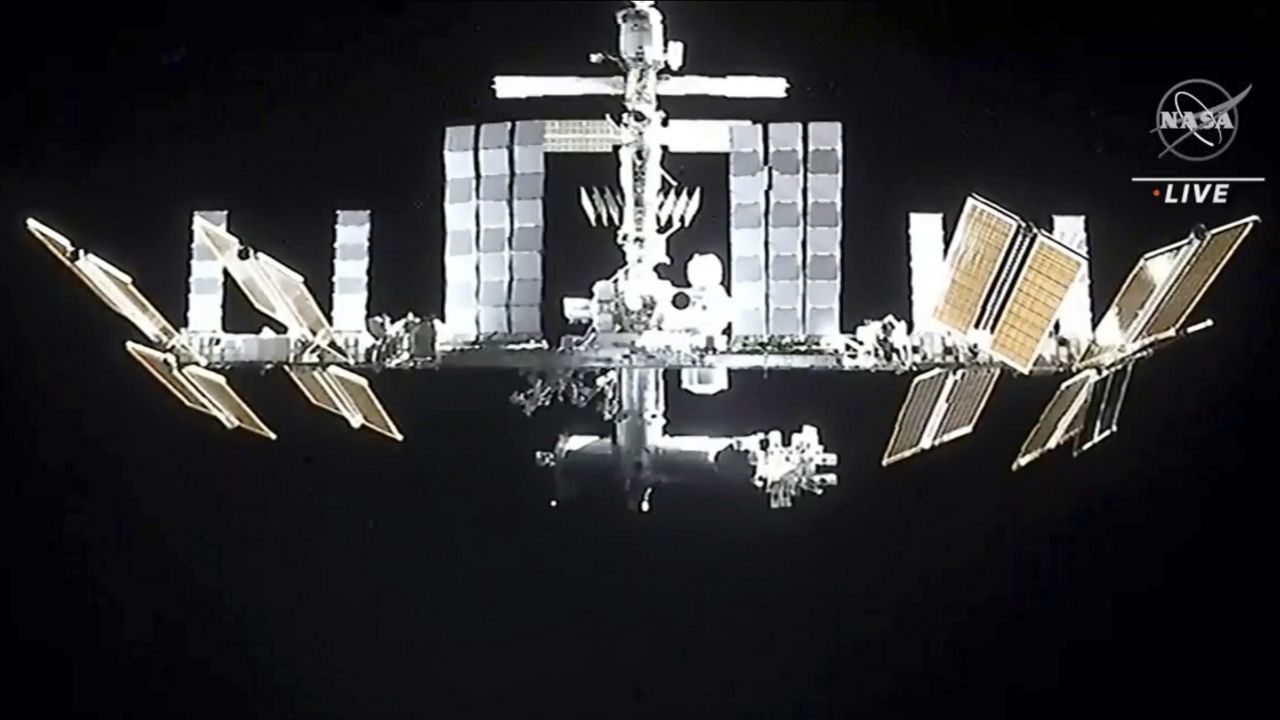U.S. government officials harshly criticized Russia on Monday for conducting a test missile strike on one of its own satellites, saying the “irresponsible” and “dangerous” act created debris that may jeopardize the astronauts and cosmonauts aboard the International Space Station.
The missile strike created nearly 1,500 pieces of traceable debris, State Department spokesperson Ned Price said at an afternoon press conference. It also created hundreds of thousands of smaller orbital debris that cannot be tracked, and which “threaten the interests of all nations,” Price said.
“This test will significantly increase the risk to astronauts and cosmonauts on the International Space Station, as well as to other human spaceflight activities,” he added. “Russia's dangerous and irresponsible behavior jeopardizes the long term sustainability of our outer space and clearly demonstrates that Russia's claims of opposing the weapons and weaponization of space are disingenuous and hypocritical.”
Price said U.S. government officials had “repeatedly” raised concerns with Russian counterparts over the potential dangers associated with unannounced strikes or tests, and will work alongside other nations to respond to Russia’s act.
In a subsequent press briefing, Pentagon press secretary John Kirby said intelligence officials "share the concern that our State Department colleagues stressed earlier today about this test."
"Our most immediate concern is the debris itself, which is now floating out there and could become a hazard, including to the International Space Station," Kirby added. "We watch closely the kinds of capabilities that Russia seems to want to develop which could pose a threat not just to our national security interests, but the security interests of other spacefaring nations."
Britain’s Defence Secretary Ben Wallace similarly condemned Russia’s actions, saying the “destructive anti-satellite test by Russia shows a complete disregard for the security, safety and sustainability of space.”
“The debris resulting from this test will remain in orbit putting satellites and human spaceflight at risk for years to come,” Wallace added.
Reports of a possible “debris-generating event” were first issued Monday morning, when the U.S. Space Command said it was “actively working to characterize the debris field” and that it would “continue to ensure all space-faring nations have the information necessary to maneuver satellites if impacted.”
The original statement did not mention Russia, but did say an interagency effort was underway to identify the source of the debris.
In a subsequent statement from Space Command, officials estimated that the debris will remain in orbit for "years and potentially for decades," and will continue to pose a threat to astronauts, satellites and other human spaceflight activities.
“Russia has demonstrated a deliberate disregard for the security, safety, stability, and long-term sustainability of the space domain for all nations,” U.S. Army Gen. James Dickinson, U.S. Space Command commander, wrote in part. “The debris created by Russia's DA-ASAT will continue to pose a threat to activities in outer space for years to come, putting satellites and space missions at risk, as well as forcing more collision avoidance maneuvers. Space activities underpin our way of life and this kind of behavior is simply irresponsible.”
There are currently astronauts from the U.S., Russia and Germany aboard the I.S.S. NASA astronauts Raja Chari, Tom Marshburn and Kayla Barron, along with European Space Agency astronaut Matthias Maurer, docked last Thursday evening; they were welcomed by fellow NASA astronaut Mark Vande Hei, as well as Russian cosmonauts Anton Shkaplerov and Pyotr Dubrov.
Shkaplerov, the current expedition commander, tweeted from the I.S.S. early Monday morning that operations were continuing despite the growing reports of an outer space debris field.
Russia’s space agency, ROSCOSMOS, confirmed that astronauts aboard the I.S.S. boarded spacecraft “according to standard procedures” when debris threatened the station, but have since returned to normal duties.
This story has been updated to include a new statement from U.S. Space Command.



